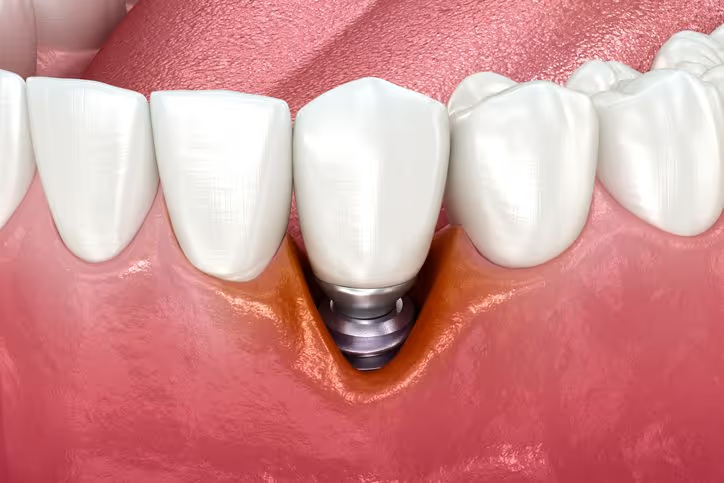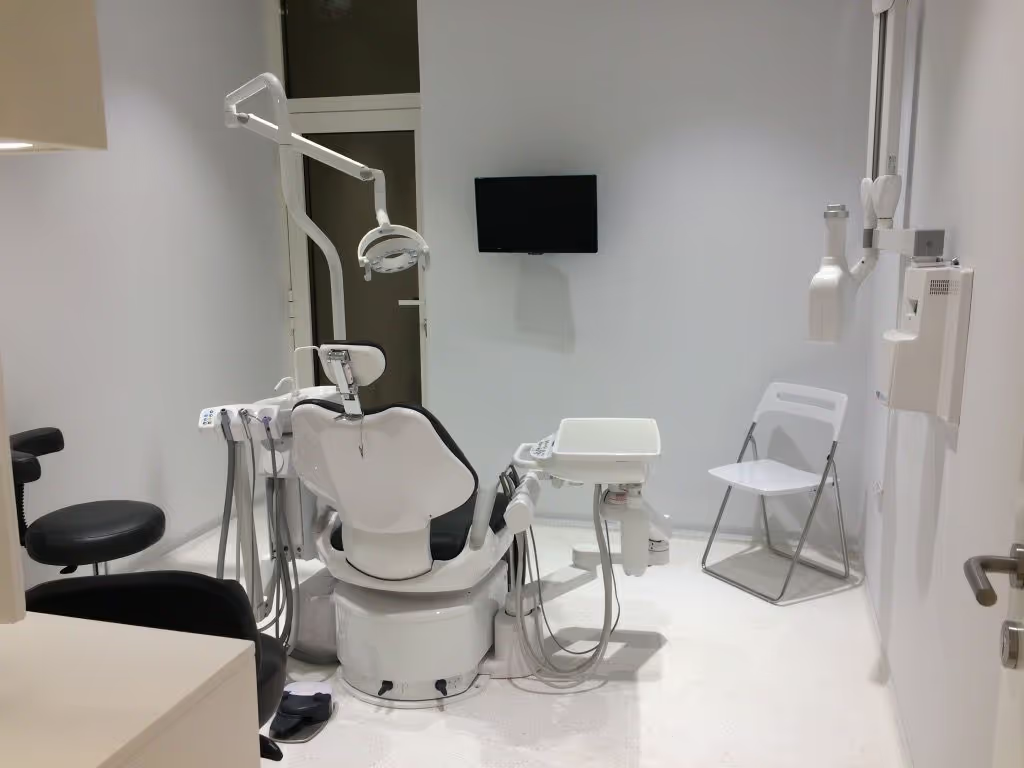

September 18, 2025
Learn the stages of peri-implantitis and how our implant dentists treat the condition to help your dental implants stay put.

Do you have a dental implant and are experiencing symptoms similar to gum disease, such as bleeding, swelling, redness, bad breath, and potentially pus? Gum disease with dental implants is absolutely possible. In fact, it’s referred to as peri-implantitis, which, if ignored, causes pain, bone loss, and unstable implants that might come loose or fail.

Peri-implantitis is a highly destructive inflammatory condition that affects the stability and function of dental implants and contributes to gum tissue and bone loss. It can occur in the gum tissue surrounding a dental implant when plaque builds up around the implant, causing inflammation and infection. Learn how to clean dental implants effectively.
Just like gingivitis, peri-implant mucositis can be easily prevented with good oral hygiene and regular professional cleaning twice a year.

Peri-implantitis is often subtle in its early stages and can slowly develop over several months or even years.Patients should typically note any signs of mild inflammation, particularly around the gum area surrounding the dental implant.Failure to address and treat peri-implantitis in the early stages can affect the underlying bone, causing your implant to become loose and unstable.This might lead to a lengthy process of rebuilding the bone back up in your jaw and replacing the implant.
Diagnosing peri-implantitis will be straightforward for implantologists like Dr Gutierres, who will carry out a clinical examination to assess the extent of the inflammation, swelling and bleeding with a radiograph to confirm and identify any bone loss.
The treatment solution will depend on the severity of your condition.Dr Gutierres, however, typically takes two approaches in this situation:

It’s entirely possible to halt, stop and reverse the progression of peri-implantitis if it’s caught at the right time and addressed immediately.Allowing the condition to progress untreated means the severity increases, which might mean we can only rectify some of the damage and not fully reverse the procedure.Get in touch with the team at Maida Smiles to treat peri-implantitis in London today.